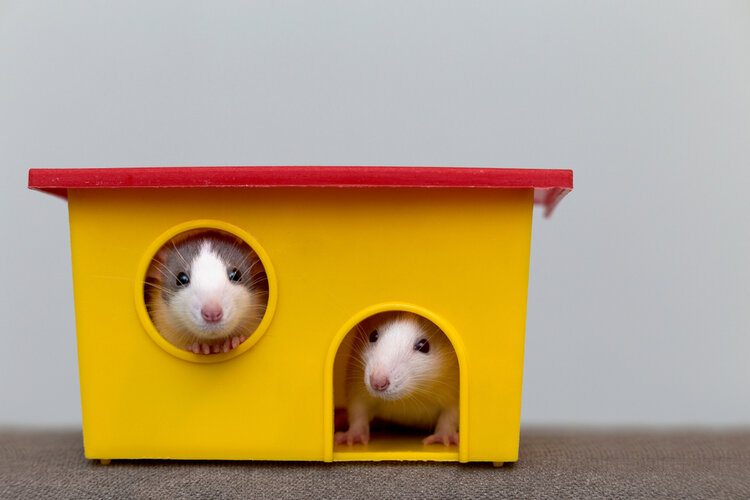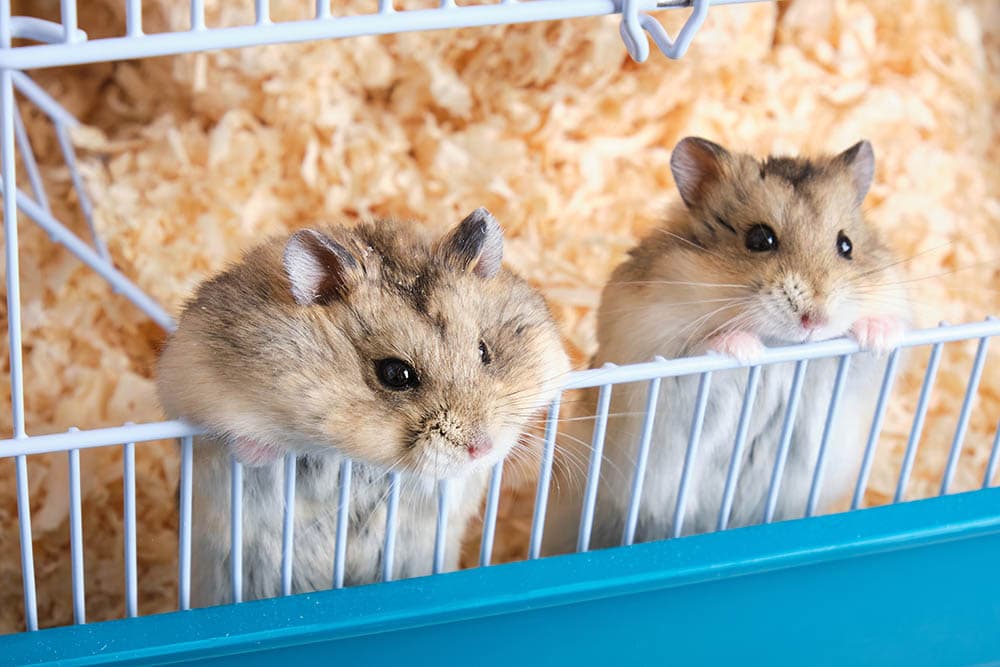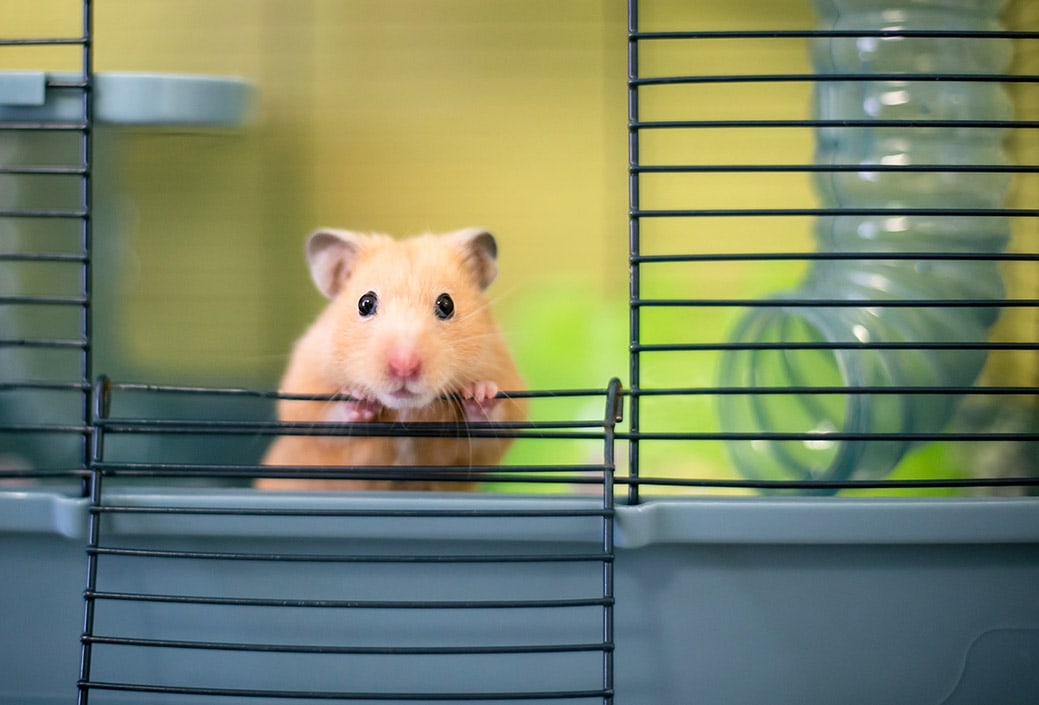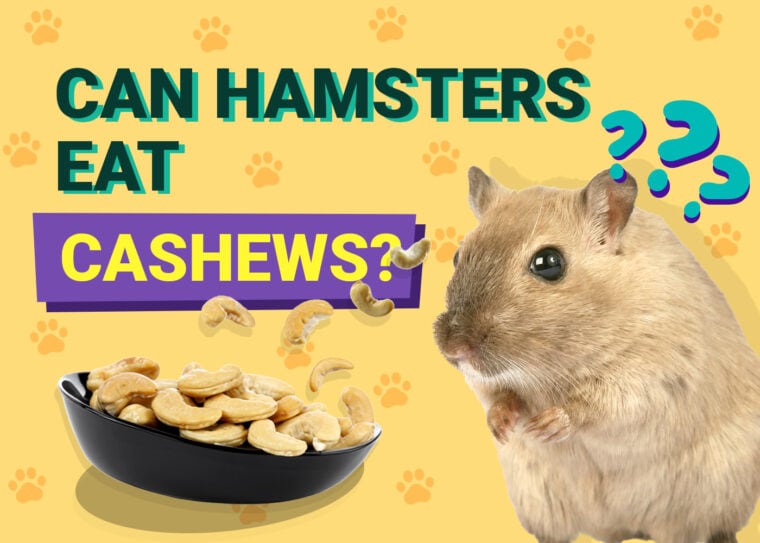
Commercial hamster diets often contain grains and seeds, but most don’t contain nuts like cashews. Including nuts like these in commercial diets renders it difficult to nutritionally balance the diet, so many companies usually avoid it. But if you’ve wondered if your hamster can have nuts like cashews, we’re here to help!
The quick answer to “can I give my hamster cashews?” is that you can feed them cashews on occasion in moderation. Read on for more information on feeding cashews to hamsters!
Can Hamsters Eat Cashews?
They sure can, but only in moderation! Like most nuts, cashews are high in naturally occurring fats, which makes them nutrient dense.
Cashews are exceptionally high in calories, so even though hamsters can eat cashews, they should be only offered as occasional snacks.1

Nutritional Downsides of Cashews
Like many nuts, the nutritional downsides of cashews far outweigh the benefits.
Cashews are incredibly calorie dense. A single teaspoon (5 grams) of cashews alone has more calories than is required by most hamsters on a daily basis. This means feeding cashews to your hamster in high quantities will quickly lead to obesity and other weight-related health issues.
Their nutritional composition is unappealing because they don’t offer your pet enough protein or fiber, and they are also lacking in certain vitamins. Their fat content is far beyond the standard requirements of a hamster.
A sudden dietary change can lead to an upset stomach in hamsters. This usually manifests as diarrhea, which shouldn’t be taken lightly in hamsters. Hamsters can quickly deteriorate if they develop diarrhea, and they require prompt veterinary attention if this ever happens. Please note that you shouldn’t attempt to rehydrate a hamster that is experiencing diarrhea with water, as this will make matters much worse.
How Many Cashews Can I Feed My Hamster?
Hamsters can have a maximum of half a cashew once a week. Dwarf hamsters have a higher metabolic rate than Syrian hamsters, but their smaller size means that they can also only handle a small morsel of a cashew.
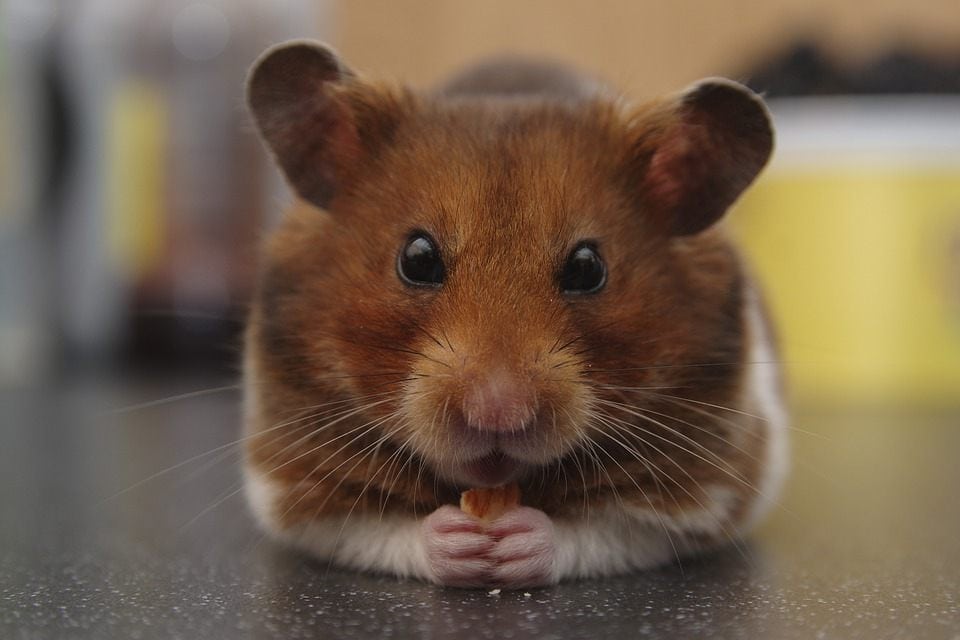
What Else Should I Consider When Feeding My Hamster Cashews?
Keep track of the snacks you’re giving your hammy every week. If you’re serving cashews every week, you shouldn’t also be offering other nuts regularly. Ideally, you should be providing different whole-food treats to your hammy instead of the same things every week. This, combined with a complete commercial diet, will ensure your hamster’s nutritional needs are being met.

Final Thoughts
Some hamsters may not like cashews, and others may be hesitant to try new food like a cashew. Maybe your hammy is the type to grab any new food and eat it with gusto! No matter how your hamster responds to the offer of a cashew, keep moderation in mind. Feeding too many high-fat, high-calorie foods like cashews can create health problems in your little friend, shortening their lifespan.
When you decide to introduce cashews to your hamster, remember to control how much you’re allowing them to eat in one sitting. As always, it is best to consult your veterinarian for more information about your hamster’s nutritional needs.


